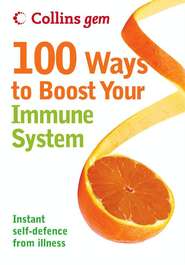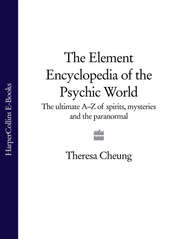По всем вопросам обращайтесь на: info@litportal.ru
(©) 2003-2024.
✖
100 Ways to Boost Your Energy
Автор
Год написания книги
2019
Настройки чтения
Размер шрифта
Высота строк
Поля
Alcohol is made from yeast and has a similar effect to sugar in your body, giving you a temporary high followed by a long low.
Coffee is a diuretic which depletes your body of nutrients and it also contains caffeine which disturbs normal sleep patterns.
Many fizzy drinks contain caffeine, as well as sugar and colourings which act as stimulants.
Tea is a stimulant with similar but weaker effects to coffee, and it contains tannin which interferes with the absorption of minerals.
Chocolate contains theobromine which has an action similar to, but not as strong as, caffeine.
Medications for the relief of headaches also contain caffeine.
Cigarettes contain cancerous chemicals and the stimulant nicotine which is sedative in large amounts.
Stimulants are your body’s greatest energy-drainers, so one of the most important steps you can take to beat fatigue is to give up or cut down on stimulants. Giving up all these stimulants at once would be impossible for most people, as well as being incredibly stressful. The first step, therefore, is to identify which stimulants you are using as pick-me-ups to get you going when your energy is flagging, and to cut consumption of them down gradually.
To cut down on stimulants without suffering try the following:
Sugar: When you crave something sweet, eat some fruit. Don’t replace sugar with sugar substitutes, as these do not help you re-educate your taste buds. Take the sugar bowl off the table and give yourself a month to gradually cut down. Read labels and find healthier alternatives. Stick with it and after a few weeks you will find that your taste buds adapt.
Coffee: Coffee is addictive and it takes about a week to break the habit. You may find yourself feeling groggy for a few days, but this will remind you how addictive and bad for you too much coffee is. Instead of coffee, drink herbal teas or coffee alternatives such as dandelion coffee. After a week you can go back to one or two cups of coffee a day, but as a treat, not as an energy booster.
Tea: Tea isn’t as energy-draining as coffee unless you drink gallons of it a day. Two or three cups a day is fine, but it is still worth experimenting with herbal teas or drinking your tea slightly weaker.
Chocolate: If you adore chocolate, you don’t need to give it up completely. Just eat it in moderation, for example four times a week rather than every day. Most important of all, don’t use it as a pick-me-up as it will have the opposite effect. Go for fruit with a handful of nuts and seeds instead if you need something sweet and satisfying.
Alcohol: If you drink a lot, start by reminding yourself that you don’t actually need to have a glass in your hand to have a good time. Set yourself a weekly target of five to seven drinks a week and stick to it. If you find this impossible, seek professional advice.
Smoking: This is perhaps one of the hardest energy-draining habits to break and one for which you may need to seek the advice of your doctor if you want to quit. It really is worth persisting, though, as many people who give up find that their energy levels soar. To reduce your cravings you need to boost your body’s ability to eliminate chemicals. A healthy diet, plenty of exercise and drinking lots of water can all help detoxify your body.
Dieting
If you’re cutting calories and skipping meals in an effort to control your weight, there’s a good chance you’re simply not giving your body the essential nutritional building-blocks it needs to operate at peak capacity.
Dieting or going for long periods without food is the worst thing you can do for your energy levels. Not only will nutritional deficiencies trigger fatigue, your blood sugar levels will plummet and, as mentioned previously, low blood sugar levels are directly related to fatigue. Eating regularly scheduled meals, with healthy snacks in between, will ensure that your blood sugar levels are balanced and you have the necessary fuel to perform at your best all day.
When you skip meals you fail to replenish your energy reserves, so always have breakfast, aim for a good lunch during the day, and keep nutritious snacks to hand. Avoid big meals because they divert blood flow to your digestive tract, making you feel heavy and tired. It is vital that you avoid large meals at bedtime, as your body will spend the night processing food rather than healing and repairing tissue. Eat little and often (be a ‘grazer’ not a ‘gorger’), and have a little healthy protein with each meal or snack – such as some nuts with a piece of fruit – because protein has a stabilizing effect on your blood sugar.
You would not expect your car to run on empty, so treat yourself as well as your car. You’ll know that driving at a constant speed gives your car the best mileage. Likewise, if you keep yourself well fed throughout the day, your metabolism will be at its best too, which means you have more energy and are in calorie-burning mode.
Sedentary lifestyle
A lifestyle that is inactive or sedentary can have a negative affect on your digestive system and reduce your respiratory capacity, place strain on your heart and cardiovascular system, and cause loss of muscle mass and stamina. On top of all that, a sedentary lifestyle can dull your powers of concentration, and if you spend too much time indoors you won’t be getting the oxygen energising benefits of fresh air.
To find out if your lifestyle is too sedentary, answer the following questions:
Is your life so busy that you haven’t got time to exercise?
Is your favourite hobby channel-surfing from the couch?
Do you circle the parking lot for 5 minutes instead of parking in the first spot you see and taking a 5-minute walk?
Do you spend most of the day at your desk or indoors?
When you sit down do you slump almost immediately?
If there is more than one ‘yes’ answer, your lifestyle may be the cause of your energy roller-coaster and you should pay special attention to the boosting energy with exercise tips on pages 92–109.
Toxic environment
Your body creates energy not just from nutrients but from oxygen and even positive emotions; therefore your energy levels will be affected by the space around you and the state of mind you are in. The room you work in, the energy in your home, the environment outside your office or house – all these have an effect on the way you feel and the amount of energy you expend in keeping going. For example, if you are constantly exposed to packed streets, buses, trains, car fumes, busy shops, clutter and lack of natural light and greenery, your body and mind are being bombarded with energy-draining stimuli. On the other hand, nature, in particular green leafy forests, clean air and surroundings that are calm and uplifting, can re-energise you.
Hidden energy-zappers such as pollution, additives, preservatives, environmental toxins, watching too much TV (which can suppress production of the sleep hormone) and excessive use of mobile phones and computers, can all drain your energy. Lack of fresh air by staying too long indoors and depriving yourself of energising oxygen is another contributing factor.
If you think that the environment you live and work in may be draining your resources, pay attention to the energy tips on pages 110–43.
Stress
Stress is a major cause of low energy and can affect you mentally, physically and emotionally. It’s well known that many illnesses are stress related, including digestive disorders such as irritable bowel syndrome, respiratory problems such as asthma, high blood pressure and tension headaches.
Heavy workloads or trying to fit in as many tasks as possible can cause a great deal of stress. Many people are constantly working against the clock and this can slowly sap energy and enthusiasm, resulting in dependency on stimulants such as caffeine to get you through the day and alcohol to help you unwind at night. The benefits of these are fleeting and the adverse effects are long term. Juggling the needs of family and work can crank up the pressure, as can financial worries, relationship problems, feeling lonely and other personal problems that drag you down.
If you do feel that you are more anxious and stressed than you should be and that this is making you feel drained and tired, pay particular attention to the energy tips on pages 171–74.
Boredom
Too much stress will drain your energy, but what is often overlooked is that a certain amount of stress is essential for a healthy, happy life. In moderation, stress sharpens your reflexes, heightens your responses and gives you the energy to cope with demanding and difficult situations. If your life were totally stress-free you wouldn’t have challenges. Life would be predictable. You wouldn’t have to adjust to change. You wouldn’t ever feel pressured. You and everyone else you know would be nice and content. And you’d all be lacking in energy and dying of boredom.
If you want to avoid stress totally you may as well start looking for a coffin. Feeling bored and unchallenged or stuck in a rut is just as draining mentally and emotionally as being burdened down with stress. You need a certain amount of challenge and tension in your life to feel alive. So if you’re lacking in energy, take a careful look at your life and see where you can give yourself greater challenge and stimulation. Perhaps it’s time to learn a new language, review your career or take up a new hobby? You should also pay particular attention to the energy tips on pages 171–74.
Pessimism
Negative mental and emotional states such as fear, guilt, anger, anxiety, loneliness and worry may be the biggest energy-drainers of them all, increasing your risk not just of fatigue and unhappiness but of poor health in general. Although a positive attitude may not be a cure-all, studies do suggest that patients who are positive and optimistic experience fewer, less severe symptoms and recover more quickly than pessimistic, negative thinkers. People who think positively also seem to have a better overall quality of life.
Bear in mind that negativity in others can also sap your strength. Listening to someone you know complain or moan constantly about the weather, their workload or life in general is a real downer. To preserve your energy, distance yourself from people like that as much as possible. If you can’t, disarm them with your positive and upbeat approach. Although relationships with people who have a glass-half-empty approach to life can wear you out, don’t forget that relationships with people who understand the importance of give and take can be a source of great happiness. The secret is to set boundaries and to learn to say ‘no’ when you are stretched too thinly.
Negative thoughts seem to breed and produce more negative thoughts, causing a downward spiral. If you tend to be a pessimist by nature, catch yourself whenever you have a negative thought and try to turn it around into a positive statement. It will be hard at first, but if you keep repeating the positive statements, they will begin to take hold and grow.
If you are prone to worry and negativity, as well as eating healthily and getting the mood-boosting effects of regular exercise (preferably in the fresh air), you should pay particular attention to the energy tips on pages 159–70.
Energy-draining medical conditions (#ulink_fffcad58-3947-55ac-8cd8-894624095b12)
For the great majority of people who suffer from low energy levels, diet and lifestyle factors are chiefly to blame. It is important to bear in mind, however, that many hidden diseases and disorders can also trigger fatigue.
Listed below are the conditions that are most commonly associated with low energy levels. If your fatigue interferes with the quality of your life for more than three weeks and can’t be explained by diet and lifestyle habits, you should see a doctor without delay. This is particularly important if you are suffering from additional symptoms such as night sweats, weight change, breathlessness, pale mucous membranes in the nose and mouth, blood in faeces or urine, swollen lymph glands, irregular or absent periods, or constant thirst.
Fatigue is a good enough reason for you to seek your doctor’s advice. Persistent fatigue should never be ignored in the hope that it will go away.
Iron-deficiency anaemia







![The Dream Dictionary from A to Z [Revised edition]: The Ultimate A–Z to Interpret the Secrets of Your Dreams](/covers_185/48653382.jpg)



